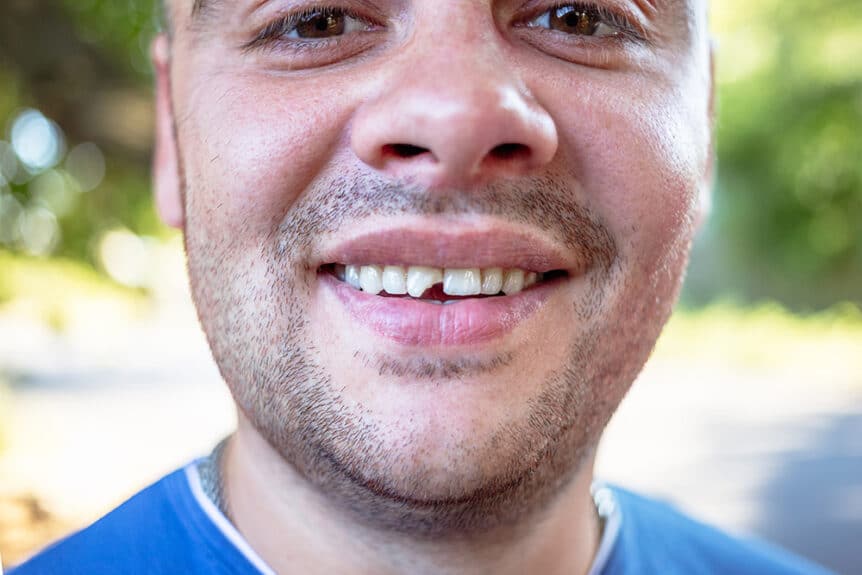Fractured teeth are a common part of dentistry. Sometimes patients are immediately aware that they have broken a tooth while others do not know until they have pain. Tooth fractures may be referred to not only as a broken tooth but also a chipped or cracked tooth.
Is There a Difference Between a Tooth Crack and Tooth Chip?
Although some chipped teeth are caused by immediate injury, many patients experience tooth breakage without knowing the cause.
Typically, a chipped tooth is visible while a cracked tooth may not always be visible. In many cases, a tooth that has chipped was probably once cracked. After time, the cracked area breaks away from the rest of the tooth structure.
If a cracked tooth is detected early, breakage may be prevented, and treatment may be easier. It is important to know that not all teeth crack the same way, which is why understanding what causes cracks and how to treat them is so important.
What Causes Teeth to Crack?
- Trauma: An injury to the mouth can cause a tooth to crack. Teeth can also crack due to trauma caused by biting down on hard food such as chewing on ice cubes or hard pretzels. Teeth can also crack due to habitual biting such as chewing fingernails or tips of pens.
- Bruxism: Extra biting forces can cause cracks to form in teeth. Bruxism is the dental term for grinding and clenching. Grinding or clenching during sleep can cause cracks in teeth.
- Tooth Decay: Poor hygiene can cause tooth decay, which weakens tooth enamel. As enamel weakens, it is more susceptible to cracking.
- Past Dental Problems: Root canals and large fillings can also make teeth more fragile, which is why dentists may recommend a protective crown after a root canal.
How to Know if Your Tooth is Cracked?
If a chipped tooth is not visible, you may not know that you have a cracked tooth because they are often asymptomatic. However, symptoms such as sensitivity to chewing, temperature, and sweets may be a sign of a crack.
To help patients understand signs and symptoms, the American Association of Endodontists released an educational video to explain.
What are Treatments for Cracked Teeth?
Treatment for a cracked tooth often depends on what kind of crack you have. There are different ways that teeth can crack.
If you have craze lines, which are small cracks within the enamel, typically no treatment is needed. Your dentist will monitor them at each visit.
But if you have a crack through the enamel, you will need to repair it or risk pain or even tooth loss because the crack deepens or become decayed. If part of the chewing surface breaks, it can usually be repaired with a filling or a crown.
The trickiest type of crack is a vertical crack that extends toward the tooth root because it cannot always be seen. And if a vertical crack is not repaired early with a crown, it can extend further toward the root, which may require a root canal. Unfortunately, if a crack makes its way through the root, teeth are not able to be saved.
Ways to Prevent a Cracked Tooth
There are easy ways to help prevent tooth cracks such as:
- Avoid hard foods such as ice chips, hard candies, and popcorn kernels.
- Consider a nightguard to reduce grinding and clenching at night.
- Wear a mouthguard during sports.
- Avoid biting on objects like pens or fingernails.
- Do not open packages with your teeth.
- Practice good oral hygiene.
- Visit your dentist regularly.
Here at Rother Dental, we are committed to your best oral health!
If you have any risk factors or signs of a tooth crack, contact us for an evaluation.


